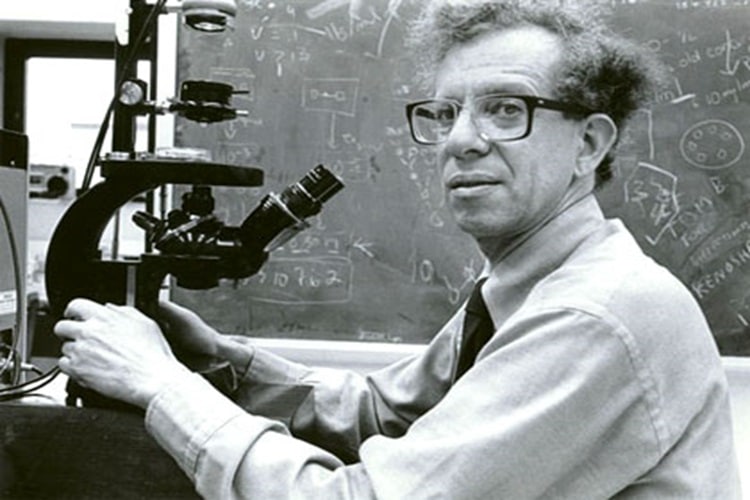Howard Martin Temin was an American geneticist and virologist who made significant contributions to the understanding of retroviruses.
Life and Career
Howard Martin Temin was born on December 10, 1934, in Philadelphia, Pennsylvania, USA. He grew up in a Jewish family and showed an early interest in science.
Temin pursued his education at Swarthmore College, where he obtained his bachelor’s degree in biology in 1955. He then went on to pursue graduate studies at the California Institute of Technology (Caltech), where he earned his Ph.D. in animal virology in 1959. His doctoral research focused on the study of RNA tumor viruses, particularly the Rous sarcoma virus.
After completing his Ph.D. Temin joined the McArdle Laboratory for Cancer Research at the University of Wisconsin–Madison as a postdoctoral researcher. It was during this time that he made a groundbreaking discovery that would shape the course of his career.
In the early 1970s, Temin proposed the reverse transcription hypothesis, which suggested that retroviruses could convert their RNA genomes into DNA using an enzyme called reverse transcriptase. This was a revolutionary idea at the time, challenging the central dogma of molecular biology, which stated that genetic information flows from DNA to RNA to protein. Temin’s hypothesis was initially met with skepticism but was eventually validated, leading to a fundamental shift in our understanding of genetic information flow.
For his groundbreaking work, Howard Temin, along with David Baltimore and Renato Dulbecco, was awarded the Nobel Prize in Physiology or Medicine in 1975. The Nobel Committee recognized him for his “discoveries concerning the interaction between animal cells and viruses,” specifically the discovery of reverse transcriptase.
Temin continued his research on retroviruses and reverse transcription throughout his career. He became a professor at the University of Wisconsin–Madison and made significant contributions to the field of molecular biology.
He died on 9 February 1994, in Madison, WI, USA.
Award and Legacy
Howard Martin Temin received several awards and honors throughout his career, with the most notable being the Nobel Prize in Physiology or Medicine in 1975. He shared the prize with David Baltimore and Renato Dulbecco. The Nobel Committee specifically recognized Temin for his groundbreaking discoveries concerning the interaction between animal cells and viruses, highlighting his work on the reverse transcription process in retroviruses.
Overall, Howard Martin Temin’s legacy is marked by his transformative contributions to the understanding of retroviruses, reverse transcription, and the broader implications for genetic information flow within cells. His work laid the foundation for advancements in molecular biology and has had a lasting impact on the scientific community.

